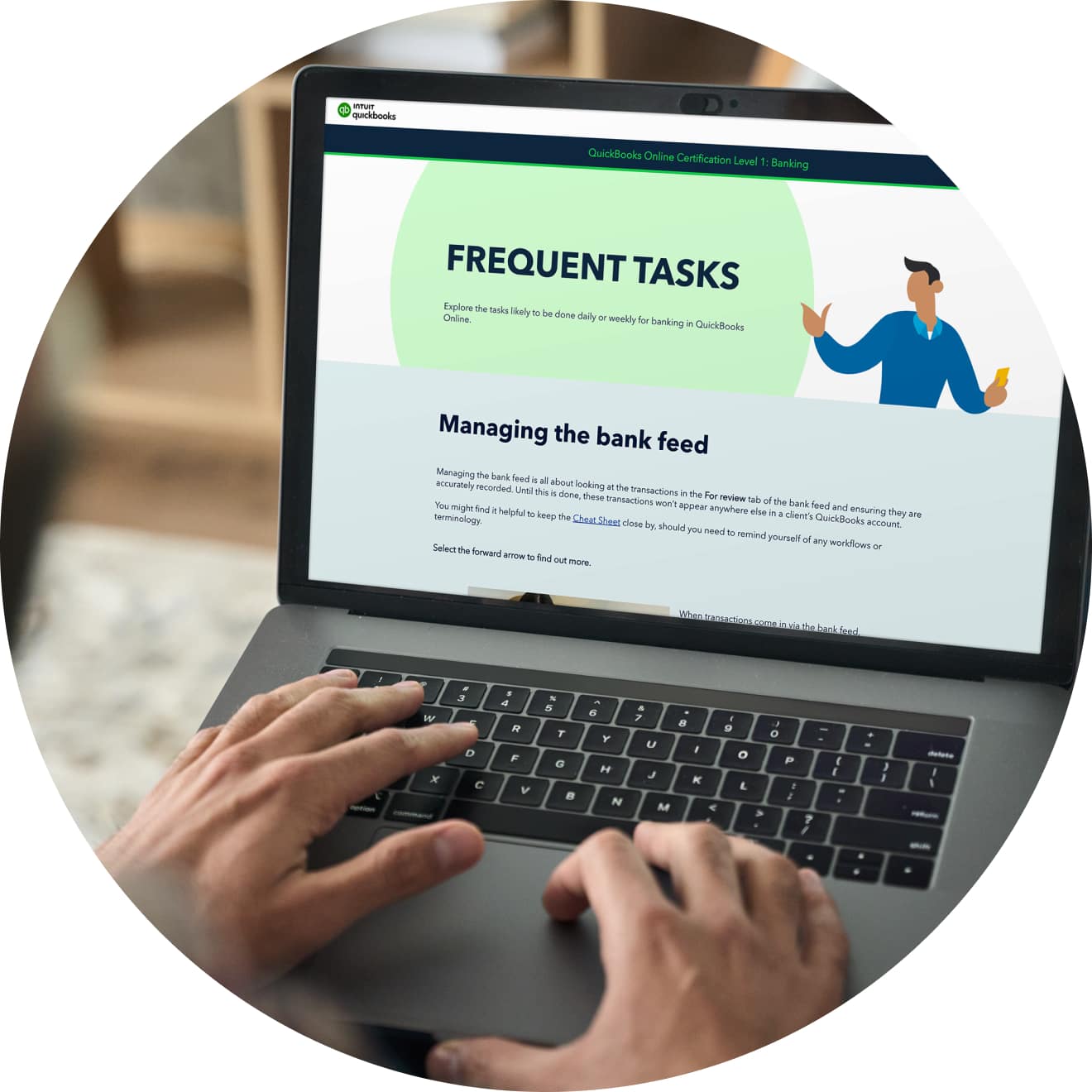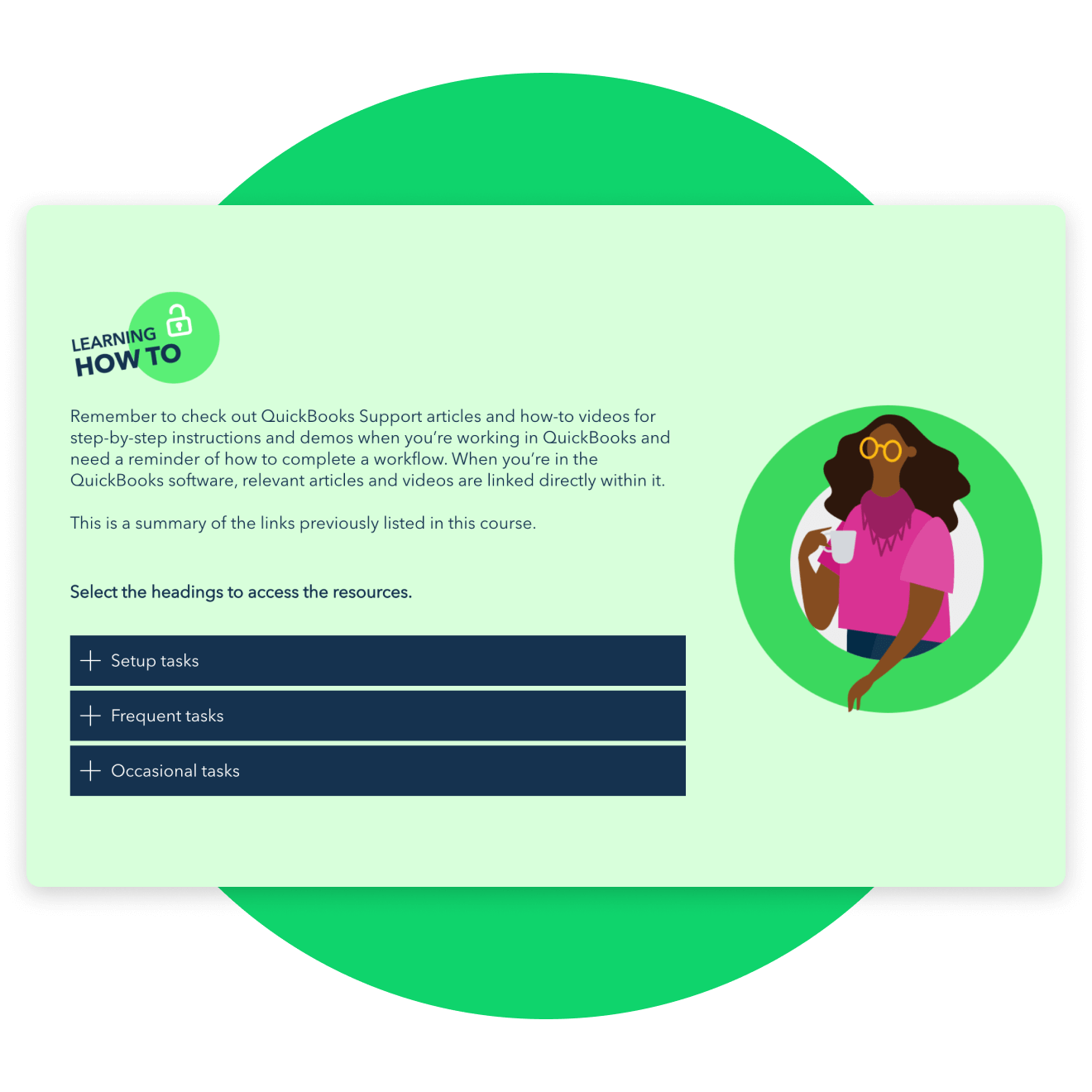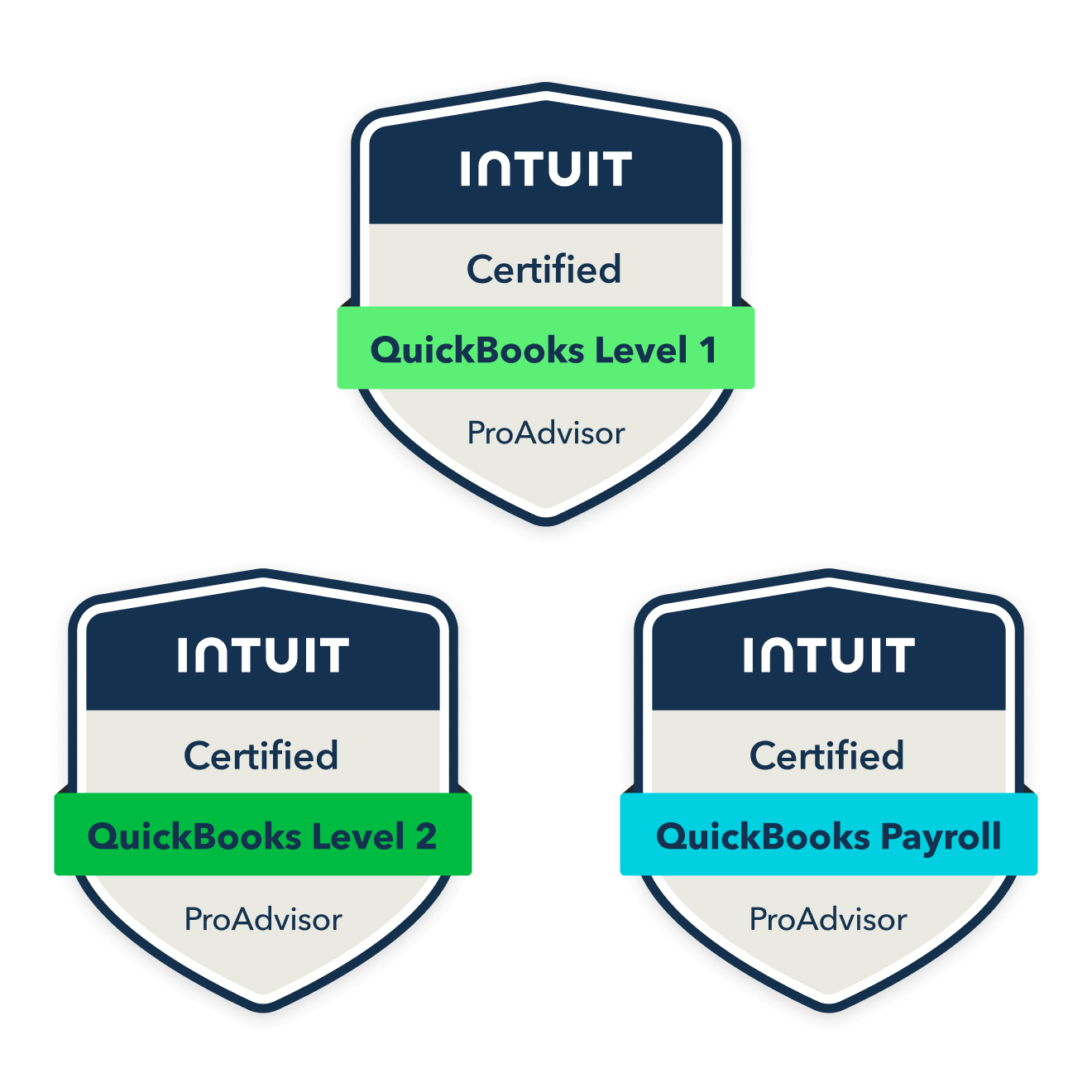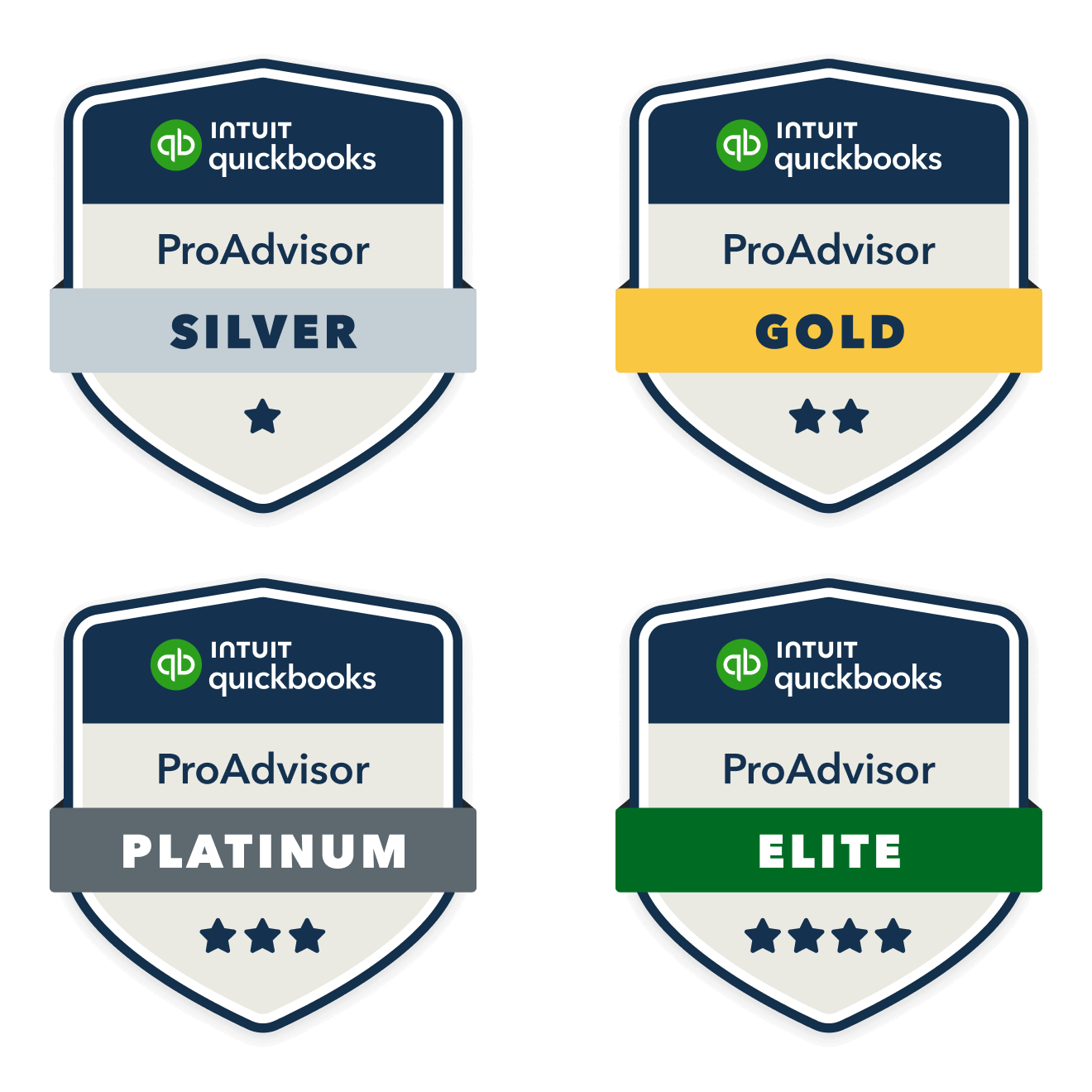Benefits that scale up with you

Learn how to optimize QuickBooks to deliver powerful accounting workflows with hands-on trainings and certifications—all in our ProAdvisor Academy.

Set yourself apart by showing clients your expertise with professional badges and certifications.

Learn about the latest updates to QuickBooks so you can keep working efficiently while delivering more value to clients.
More resources as you grow

Marketing tools and templates
Get Mailchimp marketing automation, client engagement templates, a listing in our Find-a-ProAdvisor* directory, and more.

Product perks for you and your clients
Get QuickBooks Online, QuickBooks Payroll, and QuickBooks Time for free—plus, a range of discounts on other software, services, and supplies.

Special benefits and collaborations
Elite-level ProAdvisors get access to contests, promotions, discounts, and exclusive industry events.

Free trainings and certifications
Sign up for on-demand or real-time training in our ProAdvisor Academy, from beginner to advanced levels, all while earning CPE credits.

Premium ProAdvisor support
Get expedited access to knowledgeable, US-based ProAdvisor support with far shorter wait times.**

Accountant-approved apps
Discover the best third-party apps for your clients and their growing industries.**
PRO ADVISOR TIERS
Rise through the ranks for great perks
Becoming a ProAdvisor is as simple as signing up for QuickBooks Online Accountant and racking up points. The more you earn, the better your benefits get.
Silver
Gold
Platinum
Elite
Points needed
0-499 pts
500-2399 pts
2400 - 6999 pts
7000+ pts
Marketing
QuickBooks Online migration toolkit
- Identify the clients ready for Online this year
- Build the business case for them to make the switch
- Prepare their files for migration, then get them up and running
Digital ProAdvisor badges
QuickBooks ecosystem email templates
Client engagement email templates
Find-a-Pro directory listing**
Firm growth consultation
Special benefits & promotions
Accountant-approved third-party apps**
Special events & discounts
Product support
Phone & chat support
Premium phone & chat support**
Discounts for your firm*
QuickBooks Payments*
Mailchimp Standard 75% off for 1 Year*
ProConnect Tax Returns
35% off
40% off
45% off
Docusign*
20% off
25% off
30% off
40% off
Checks, tax forms & other supplies
Discounts for your clients*
QuickBooks Online & Payroll*
QuickBooks Payments*
QuickBooks Bill Pay*
Docusign*
Checks, tax forms & other supplies
Software for your firm
QuickBooks Online*
QuickBooks Online Payroll*
QuickBooks Bill Pay*
QuickBooks Time Tracking*
Training
ProAdvisor Academy
QuickBooks Online training & presentation materials for your clients
*Additional terms, conditions and fees may apply with certain services, apps and offers. Eligibility criteria and approvals may apply. Program benefit offers, features, and resources are subject to change without notice.
Resources for all accountants
Marketing training videos
Take your business to the next level with this four-part marketing video series and learn how to expand the reach of your firm.
Content marketing with Jason Blumer
Marketing and sales for small businesses
Firm of the Future access
Access the Firm of the Future website for industry news and insights, expert advice, product release information, and much more.
In the Know hub
Check out the In the Know hub to access our ongoing series of live webinars and learn all about the latest updates to the QuickBooks Online family of products, plus view exclusive new feature demos.
How to earn points
25 Points
- Active Contractor Payments & 1099 filing client subscription
- Active QuickBooks Bill Pay client subscription (Basic)
50 Points
- Active QuickBooks Online Payroll client subscription (Core, Premium)
- Active QuickBooks Online client subscription
- Active QuickBooks Bill Pay client subscription (Premium)
75 Points
- Active QuickBooks Payroll Elite client subscription
- Active QuickBooks Online Advanced client subscription
- Active QuickBooks Payments client subscription
- Active QuickBooks Bill Pay client subscription (Elite)
100 Points
- Purchase ProAdvisor Premier or Enterprise for desktop (once per year)
- Current QuickBooks Online Level 1 Certification
- Current certification for QuickBooks Desktop Enterprise
200 Points
- Current QuickBooks Online Level 2 Certification
- Current certification for QuickBooks Payroll
Get noticed with achievement badges

Help differentiate yourself in the marketplace by showcasing the certification badges you earn in our ProAdvisor Academy.

Leveling up matters. Let everyone know what ProAdvisor tier you’ve achieved.
Success stories from accounting professionals

“The Find-a-ProAdvisor directory gives me the opportunity to get in front of potential clients by showing them my expertise and contact info without spending a dime.
Karine Woodman, 24hr Bookkeeper, Inc.

“I love that I can access free training whenever I want. I often reference the training materials more than once.”
Sherrell T Martin, Nitram Financial Solutions

“Find-a-ProAdvisor basically launched my whole book of business, and I have nothing but glowing things to say about it.”
Nick Swedberg, Boyum Barensheer
Need to support desktop clients?
Get the desktop software and training you need to maximize productivity, at an exclusive QuickBooks ProAdvisor price.
ProAdvisor Premier Software Bundle
$999/yr* per user
ProAdvisor Enterprise Software Bundle
$1599/yr* per user
QuickBooks Desktop training and certifications
QuickBooks Accountant Desktop
24/7 Customer Support**
QuickBooks Enterprise Accountant Edition
QuickBooks Desktop Mac Plus
To learn more and purchase ProAdvisor Bundles or QuickBooks
software for your clients, contact sales at (800) 459-0424
